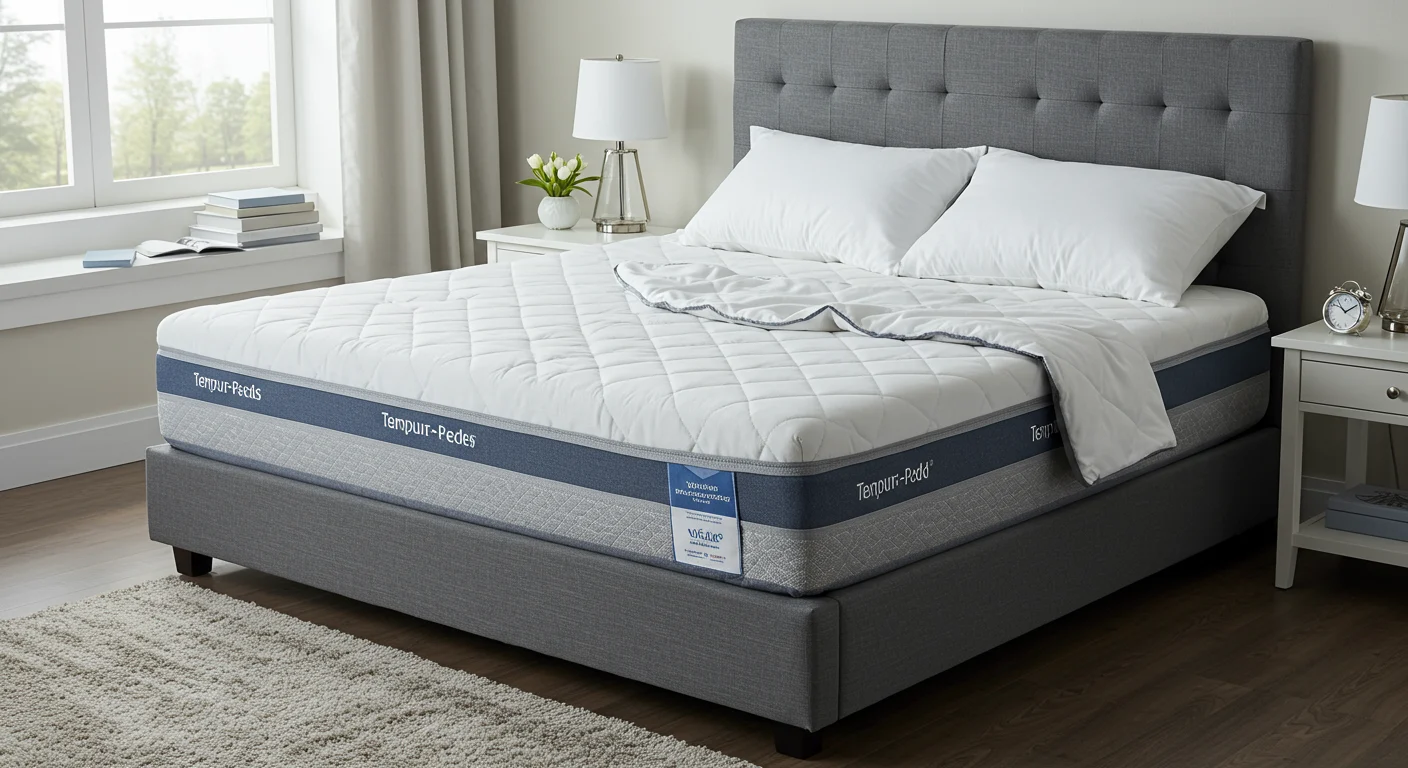
Does Your Mattress Affect Sleep Quality? The Science Behind Better Sleep
Here’s the thing—you don’t notice a mattress when it’s doing its job. You only notice it when you wake up stiff, groggy, or weirdly cranky for no good reason. If you’re wondering, Does Mattress Affect Sleep Quality, the short answer is yes. The longer answer: it subtly controls how deep you sleep, how your nervous system unwinds, and how your body repairs overnight. Let’s break it down like two friends comparing notes after a rough night.
How a mattress messes with (or protects) deep sleep
Deep sleep and REM are fragile. Tiny discomforts kick you back to lighter stages without fully waking you up. Those are micro-arousals, and they add up. A mattress that doesn’t support your spine makes muscles fire all night to stabilize you. The result? Your brain spends less time in slow-wave sleep, which is when growth hormone and tissue repair peak. So yes—Does Mattress Affect Sleep Quality? Absolutely, through alignment and pressure relief that either calm or constantly poke your nervous system.
Energy and mood: why mornings feel great—or like a hangover without the fun
Ever wake up after 8 hours and still feel cooked? That’s often sleep quality, not quantity. Poor support keeps your body in subtle fight-or-flight, bumping cortisol and cutting REM—hello irritability and brain fog. A cooler, pressure-relieving surface does the opposite: steadier heart rate variability, fewer tosses, and usually better next-day mood. If you’re asking Does Mattress Affect Sleep Quality and next-day energy, it’s basically the floor your recovery stands on.
Support vs. firmness (they’re not the same thing)
Quick confession: I used to think firm meant supportive. Not quite. Support means your spine stays neutral; firmness is the surface feel. You can have a medium mattress with fantastic underlying support (think zoned coils) or a rock-hard bed that still lets your hips sink wrong. If your shoulders tingle or your lower back talks back, the balance isn’t right. This is one of the most direct answers to Does Mattress Affect Sleep Quality—when alignment clicks, your body stops fighting the bed and finally rests.
Cooling, motion, and materials: the quiet heroes
Heat is a sleep killer. Deep sleep likes cooler temps, so foams that trap heat can chip away at quality without you realizing it. Breathable covers, open-cell foams, latex, or hybrid designs usually help. Motion isolation matters too—if your partner flips, you shouldn’t bounce. And materials? Natural latex or CertiPUR-US foams can reduce chemical odor sensitivity for some folks, which keeps your bedroom feeling, well, like a place to breathe. All tiny levers in the big Does Mattress Affect Sleep Quality question.
How to know your mattress is the problem (not you)
A few simple tells: you sleep better in hotels or the guest room, you wake up with new aches that fade in an hour, you overheat at 3 a.m., or you’re constantly nudging a pillow under your knees or waist just to cope. If two or more of those sound familiar, your mattress is likely stealing stage 3 and REM time. And yep, that means it’s affecting sleep quality more than your evening scroll habit (though, maybe park the phone too).
Firmness by position and body type (the quick, real-world guide)
Side sleepers usually thrive on medium to medium-soft so shoulders and hips sink just enough. Back sleepers tend to like medium to medium-firm—keeps the lumbar from drooping. Stomach sleepers often need firmer to prevent swayback. Heavier bodies benefit from stronger coil support and slightly firmer feels; lighter bodies often prefer a bit more plush so the surface contours. It’s not about chasing a mattress trend—it’s about alignment that actually sticks through the night.
Is it time to replace it? (and what to try first)
Most beds tap out around 7–10 years, faster if there’s sagging over an inch or obvious soft spots. Before you panic-buy, try small tweaks: rotate the mattress, add a breathable protector, or test a high-quality topper for pressure relief. If that helps, great—you’ve learned what feel your body likes. If not, it’s time. And if you’re still thinking, Does Mattress Affect Sleep Quality enough to replace it? If you’re waking up sore or drained, that’s your answer.
Try this tonight: two quick sleep experiments
Two small tests can tell you a lot. First, alignment: lie on your side and have someone snap a quick photo from behind. If your spine draws a straight line from neck to tailbone, you’re close. If it’s a smiley face or frowny face, the feel is off. Second, pressure: place a folded towel under your waist (side) or under your hips (back) for 15 minutes. If tension melts, your mattress isn’t contouring where you need it. That’s your proof that yes, your mattress is affecting sleep quality.
Where to start shopping (without getting overwhelmed)
I’ll keep it simple. Look for a mattress with clear zoning or proven coil support, pressure-relieving comfort layers, and an honest cooling story (not just buzzwords). Prioritize generous in-home trials and easy returns so you can actually sleep on it for a month. If you want my short list, I keep updated, bias-checked picks on Consumer's Best—think of it as your shortcut to options that nail alignment, temperature, and motion control without the hype.
Bottom line
Believe it or not, the mattress is the quiet main character of your sleep story. The right one boosts recovery, steadies mood, and gives you back mornings that feel clear and light. If you’re still wondering, Does Mattress Affect Sleep Quality—you already know the answer. If your body’s asking for better, it’s worth listening. And if you want a nudge in the right direction, check my current favorites on Consumer's Best and start with the feel that fits your body first.










